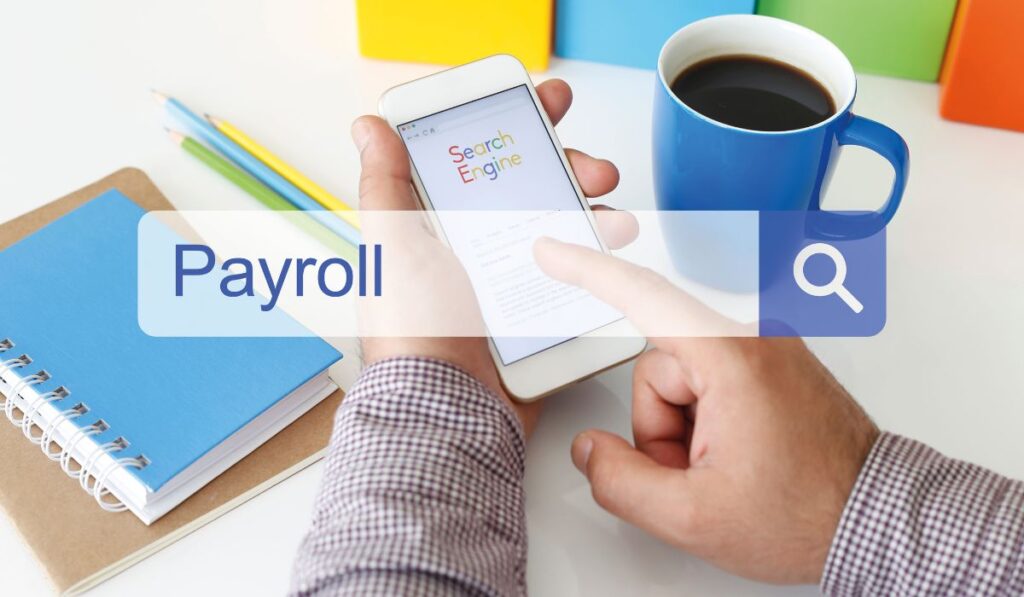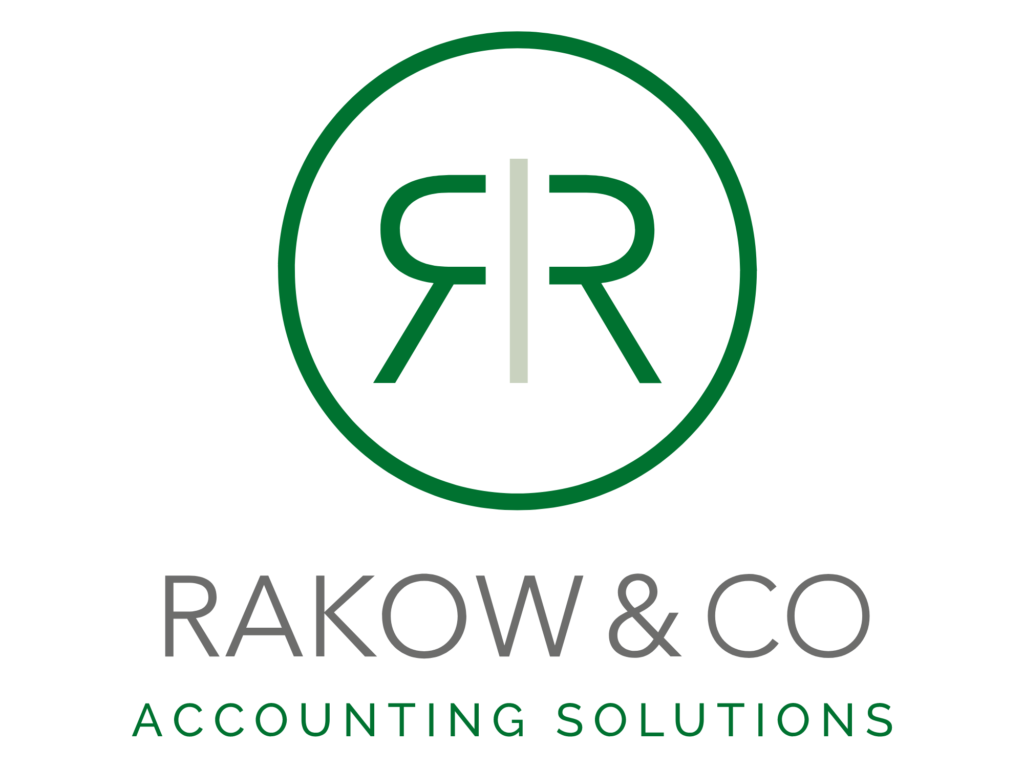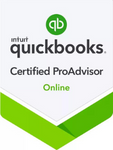Running payroll is a critical aspect of any small or large business. It involves keeping track of the salary paid to each employee and other factors like benefits, pension and taxes. An effective payroll system ensures that your employees are fairly compensated and your business complies with government regulations.
If you’re a business owner, you probably know how stressful handling payroll in-house can be. Processing quarterly payroll taxes, new hire forms, tax forms for employees (like the 1099s and W-2s) and FICA taxes can be very confusing. If you make mistakes or miss any deadlines, the authorities will slap you with a hefty penalty.
The good news is that there are payroll solutions that can handle your payroll process from beginning to end. Outsourcing payroll to such companies will save you lots of time, money and headache.
Types of Payroll Systems
There are 4 main types of payroll systems. Think through the options and select the one that works best for your business.

In-House Payroll
This option is ideal for small businesses with not more than 10 employees. With in-house systems, one of the staff members is responsible for handling the payroll book. Sometimes, integrated payroll software or stand-alone payroll software is used to calculate payroll.
Pros
- Managing data in-house maintains company privacy
- Costs are minimized
- Using intuitive tools simplifies the payroll processes
Cons
- Not very effective for companies with more than 10 employees
- Takes up huge chunks of time
- Higher chances of making errors due to lack of expertise
Bookkeeper Managed Payroll
As your business grows, you might realize that your payroll needs cannot be handled in-house. This would be the ideal time to outsource payroll to a bookkeeper. Since these professionals have skills in all the services you need, payroll processes will be streamlined and errors minimized.
If you need the services of a payroll bookkeeper, Rakow & Co can help you with all your payroll, bookkeeping and tax requirements
Pros
- Ideal for medium-sized businesses
- Professional management of your payroll
- Your team is freed up to focus on core business activities
- The system can be customized to meet your needs
Cons
- Since CPAs and bookkeepers are not familiar with the dynamics of your business, they are prone to making blunders
- CPAs and bookkeepers will not handle bank deposits, transactions and deductions

Agency Managed Payroll
This involves hiring a company to handle all the payroll functions on behalf of your business. A payroll services agency will take care of all your payroll obligations, including salary deposits and deductions. Such agencies usually provide qualified and experienced professionals who will cover all administrative tasks and ensure full compliance.
Pros
- Ideal for large organizations
- Offer peace of mind with compliance
- Ensures punctuality and accuracy
Cons
- It can be costly compared to other payroll systems
- You will have less control over the payroll processes
- Possibly a less personal service than you would get from a bookkeeping company
Software Managed Payroll
With payroll software, all you need to do is enter the data, and the tool will handle everything else. All the features and tools of the software are hosted in the cloud, allowing you to monitor employee hours, sick days and vacations from your mobile device or laptop. Popular payroll software includes ADP, Patriot, Gusto, SurePayroll, Block and OnPay.
Pros
- You have access to payroll details 24/7
- Payroll tools usually integrate with accounting and HR systems
- User-friendly and simple interfaces
- Offers automatic calculations
Cons
- You need to hire in-house staff to manage the system
- Any tool is only valuable if skilled people are making the most use of it
- Since it’s not handled by a professional, there’s still a margin for error

Signs Your Business Needs A Payroll Solution
Is it time to outsource your payroll functions? Let’s look at the signs.
Payroll Tasks Are Distracting You
Like many other business owners, you probably spend hours calculating, paying and filing payroll taxes. This usually means spending less time on revenue-producing activities. Payroll solutions can handle all the monthly, weekly and daily tasks involved in your payroll process. This will free up you and your employees to focus on more productive activities instead.
You Are Making Data Entry Mistakes
Payroll processing involves a lot of numbers. You must enter the correct number of hours worked, the right salary/allowances and the right amount of deductions. When you mess up any of these numbers, you might end up paying your contractors and employees too little or too much. These mistakes will also be reflected in your tax filings.
Working with a payroll solution provider will help you minimize these input errors. Even when mistakes are made, they are easier to detect and correct.
You’re Running Payroll Late
Delaying salaries can be very frustrating and demotivating for your employees. This could lower their productivity and even result in a high turnover rate. Hiring a professional payroll service will ensure that paychecks are processed on time, thus keeping your employees happy and motivated.
You’re Struggling With Deductions
Once in a while, you’re likely to be notified of a court judgment (like child support or alimony) against one of your employees. In such cases, you are required to deduct and remit a percentage of their income to the relevant party at specific times. Keeping up with such deductions is usually a struggle for business owners.
Whether you are deducting wage garnishments or benefits, outsourcing payroll saves you the trouble and minimizes the chances of messing up.
You’re Late Submitting 1099s Or W-2s
The deadline for submitting 1099 forms for contractors and W-2 forms for employees is 31st January. There are penalties for late filing, which keep increasing the longer you delay. A payroll service provider will ensure that your wage statements are filled and submitted on time.

How To Choose A Payroll Provider
There’s no doubt that finding the right payroll solution offers many benefits to both small and large businesses. The question is, how do you choose a payroll provider that will meet your needs?
Here are a few important factors to think about before making a final decision.
Core Features
When considering your payroll solutions, you need to figure out which core features your business needs. Maybe you want a service that will simply automate payroll processing. Or you’re looking for a solution that comes with all kinds of add-ons.
Make a list of your critical business needs and look for payroll services that can satisfy those specific requirements. Most solutions come with tiered plans, starting from basic packages to more advanced options. Find the tier that best meets the payroll needs of your business.
Pricing
The cost of payroll solutions varies depending on their pricing structures and the features offered. Most providers charge a flat rate monthly, quarterly or yearly. Others will charge a fee for every employee in your business. Extra services like HR service management, direct deposit and tax filing could require additional fees.
Be sure to find a payroll service that fits within your budget. An ideal solution will save your business effort and time at an affordable price point.
Tax Compliance Updates
Tax compliance rules are always changing. To ensure your payroll company stays in compliance and avoids errors. Payroll service providers must always be up-to-date regarding the law. Find out if the payroll provider has a compliance team that manages these updates. Such a team is usually made up of experts who update tax tables regularly and take care of tax filings and payments.
Good payroll solutions will also provide penalty protection whenever there’s a filing mistake.
Customer Support
When assessing the quality of customer support offered, ask yourself the following questions:
- Do the support staff have any professional payroll certifications?
- Is customer care available via email, chat or phone?
- How fast do the staff respond to support requests?
- Will the company assign you a dedicated account manager?
- Will you have access to specialists to handle more complex situations?
Data Integration
Many businesses have existing systems such as point of sale (PoS) systems and online accounting software like Quickbooks. Your preferred payroll solution should be able to integrate smoothly with all the existing systems. This will reduce paperwork, eliminate duplicate data entry and ensure point-in-time reporting.
Conclusion
If you’re making data entry errors, missing deadlines, running payroll late or wasting time on payroll-related tasks, you should consider outsourcing.
Choosing between the many payroll solutions in the market can be confusing. Before making a decision, think about your business needs, budget, payroll features offered, tax compliance updates and availability of customer support. Finally, establish if the payroll service is a member of the American Payroll Association (APA).








